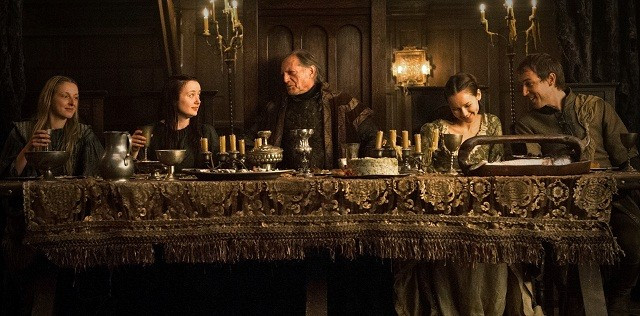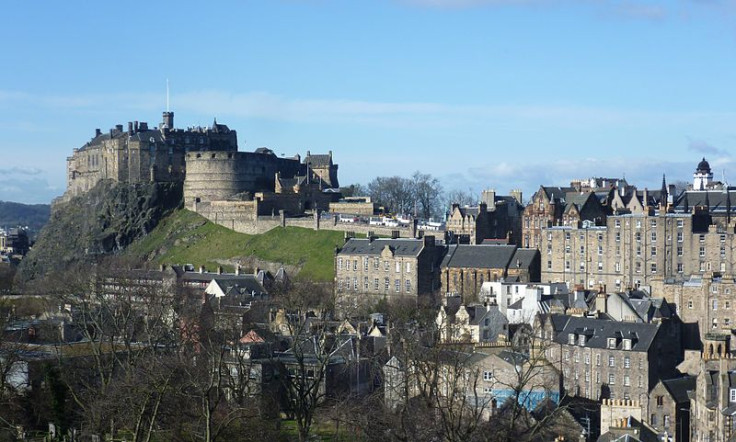Is Game of Thrones Any Bloodier than England and Scotland's Middle Ages? [SPOILER ALERT]
Warning: Spoilers for season four, episode two

Pillaging, plundering and poisoning - particularly in the case of the tyrannical King Joffrey in the last "Purple Wedding" episode - has been central to the depiction of social hierarchy, religion, corruption and civil war in the Game of Thrones.
Yet the brutality and sex that interweaves the plotlines reflect more of history than meets the eye. George RR Martin, author of the Game of Thrones books, once told The Week that he simple emulated the dark side of human nature, as recorded in history: "No matter how much I make up, there's stuff in history that's just as bad, or worse."
Valar Morghulis - "All men must die" - is a code phrase recited in High Valyrian at the end of the second season. It correlates with various bloody historical events that took place in Britain in the Middle Ages, a period marked by beheadings, state-sanctioned murders and claims of witchcraft.
The Black Dinner
The Red Wedding scene in series three which wiped out three Starks - who were bumped off by the Lannisters - led some viewers to criticise Martin of going over the top. Yet the episode was partly based on the Black Dinner of 1440 at Edinburgh Castle - one of the most tragic moments in Scotland's history.

In November that year, the 16-year-old Earl of Douglas was invited to Edinburgh Castle by Sir William Crichton who, as chancellor of Scotland, was a leading member of the court of King James II.
Crichton, fearing the Douglas brothers and their allies were becoming too powerful, brought the men in to eat and drink until the king's men began pounding drums. The head of a black bull, signifying that death was near, was served.
Shortly after the drums began, the king's men dragged the earl and his supporters into the courtyard, where they were found guilty of high treason in a mock trial and beheaded.
Glencoe Massacre
The tale of one Scottish clan slaughtering another is another event which inspired the scene. In February 1692, in the aftermath of the Glorious Revolution and the Jacobite uprising of 1689, a massacre took place in the highlands of Scotland.
In 1691, all Scottish clans were called upon to renounce the deposed King of Scotland, James VII, and swear allegiance to King William III and Queen Mary II. The chief of each clan had until the first day of January in 1692, to provide a signed document swearing an oath to William.
The MacDonalds, of Glencoe, were unlucky. Their messenger arrived with this information three days before the deadline. Their response was then rejected by the Secretary of State's legal team for being late and the rival clan Campbell, of the town of Inveraray, hatched a plan to kill the MacDonalds for not pledging allegiance to the new monarchs.
At the end of January, over 100 men under the command of Robert Campbell, arrived at the MacDonalds' residence in Glencoe, stating they needed shelter as a nearby fort was full. That night, when the MacDonalds had gone to bed, the Campbells struck - murdering 38 members of the clan.
Another 40 women and children died after their homes were burnt down, perishing in the blizzard that raged that night.
Wars of the Roses
Westeros, a fictional continent along with Essos, is supposed to loosely represent England during the Wars of the Roses, the civil wars of the mid to late 15th century. As well as brutal events in Scotland's history, the violence in Games of Thrones is in keeping with England in the Middle Ages.
The programme has its fair share of gore. In the third series, Theon Greyjoy is tortured at length before having his penis cut off by Ramsay Snow - who then emphatically taunted him by eating a sausage. At one point, Daenerys Targaryen has to eat a raw horse's heart without vomiting. Another man has his head boiled with molten gold.
While extreme, Martin's fantasy is inspired by a period in which three kings were slayed - Henry VI, Edward V and Richard III - and princes and pretenders were butchered mercilessly. The period also saw the Battle of Towton in March 1461, in which 28,000 men were slaughtered in a Yorkshire village in one of the bloodiest battles fought on English soil.
© Copyright IBTimes 2025. All rights reserved.




















